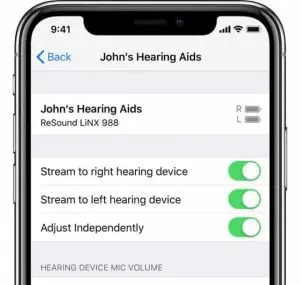Medicare: What is medicare and what coverage for hearing care is available?
There have been a few changes in the hearing healthcare industry in the past few months. The FDA has released its guidelines regarding Over-the-Counter (OTC) hearing aids and many options are at pharmacies and electronic stores now. I am sure more will become available in the near future. There is still some confusion about these aids, as is usual when something is new. We at Hears to U Audiology and our online store Hears Hearing & Hearables, are ready to answer all questions about OTC aids, “regular” hearing aids, and what the options are to pay for them.
Many are surprised to learn that Medicare does not cover hearing aids.
What is Medicare? Medicare is a federal health insurance program, passed into law in 1965, for people 65 and older, people with end-stage kidney disease, and younger people with certain types of disabilities. Medicare has four parts:
- Part A: This part covers home health services, hospice, inpatient hospital care, nursing home care (with limitations), and skilled nursing facility care.
- Part B: B covers limited outpatient prescription drugs, necessary medical services, preventive services, mental health, ambulance, and durable medical equipment. Sadly hearing aids are not part of the durable medical equipment.
- Part C: Is when you get a Medicare Advantage plan that includes all the benefits of Parts A and B (with a few exclusions), but adds a private medical insurance plan that is chosen by you based on your needs and budget. Your private insurance plan is then bundled with your original Medicare A or B plan, so you have all the benefits of Parts A and B, plus the benefits of your private plan.
- Part D: This part includes prescription drug coverage. Medications covered by Part D will vary depending on the insurance company but will cover at least two drugs in the most commonly prescribed categories and classes, such as antidepressants, and antipsychotics.
As you see, Medicare does not cover the cost of hearing aids. Not only doesn’t it cover the cost of the hearing aids but also not the service for fittings of hearing aids or any followups, maintenance, or repairs. Surprisingly Part A and B do cover hearing exams for diagnostic purposes, as long as you have a referral from your doctor.
Why doesn’t Medicare cover hearing aids and related services?
According to Garrett Ball, President of Secure Medicare Solutions, “when Medicare was originally passed into law in 1965, it did not include coverage for hearing or dental or vision. The rationale was that lifespans were shorter and not as many lived long enough to need hearing aids. Also, hearing aids were cheaper, though less advanced. Although it has been a commonly debated topic many times since then, Medicare still does not cover hearing aids.”
Medicare will not cover these costs until there is reform.
There have been attempts over the years; the “Seniors Have Eyes, Ears and Teeth Act” was introduced in 2019, but little progress was made. The Build Back Better Bill passed in the House but did not pass in the Senate. Many healthcare researchers have proposed adding a voluntary supplement to Medicare premiums to cover these costs, but there seems to be little appetite to see it to fruition.
Currently, your options to pay for hearing aids are:
- Out of pocket
- Private health insurance: benefits vary greatly so check with your plan.
- Flexible spending accounts: If your employer offers one, you can use pre-tax spending money to offset costs.
- Health saving accounts: You can contribute to medical expenses, including aids, using these funds.
- Veterans Administration: If you are a veteran and qualify, you may be eligible for hearing aids.
- Loans: some clinics will allow you to pay the cost over time through a program that offers an interest-free loan as long as the costs are fully paid over the time period agreed upon. Care Credit is one example.
If Medicare reform is to be the answer, then we need to do what we can to make it happen. People age. This problem is not going to go away, it is only going to grow as more and more baby boomers age into Medicare coverage. While hearing aids are not needed only by those over 65, given that many wait to seek help, many are Medicare-eligible. It is generally accepted that prevention, while costly initially, is less expensive than reactive health care. The same thing holds here. Yes, paying for hearing aids will be expensive, but less so than paying for the sequelae of untreated hearing loss (falls, depression, isolation, dementia, etc). So, lobby for it. Talk to your Congressmen. The more noise we make, the more attention will be paid.
If you want to know more, we are here to answer your questions. You can also review:
- How Medicare Could Provide Dental, Vision, and Hearing Care for Beneficiaries.
An issue brief dated January 2018 by the Commonwealth Fund and written by Dr. Amber Willink, Ms. Cathy Schoen, and Dr. Karen Davis.
- Does Medicare Cover Hearing Aids. National Council on Aging. July 29, 2022 written by Chrissy Holm.
Thank you for reading,
Karen M.





